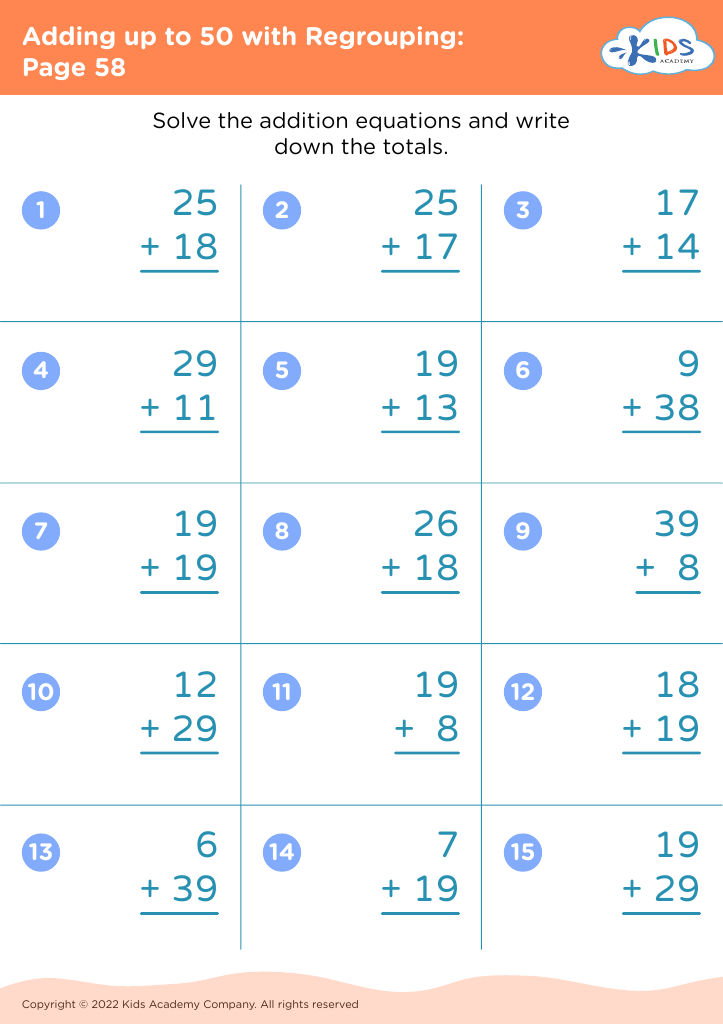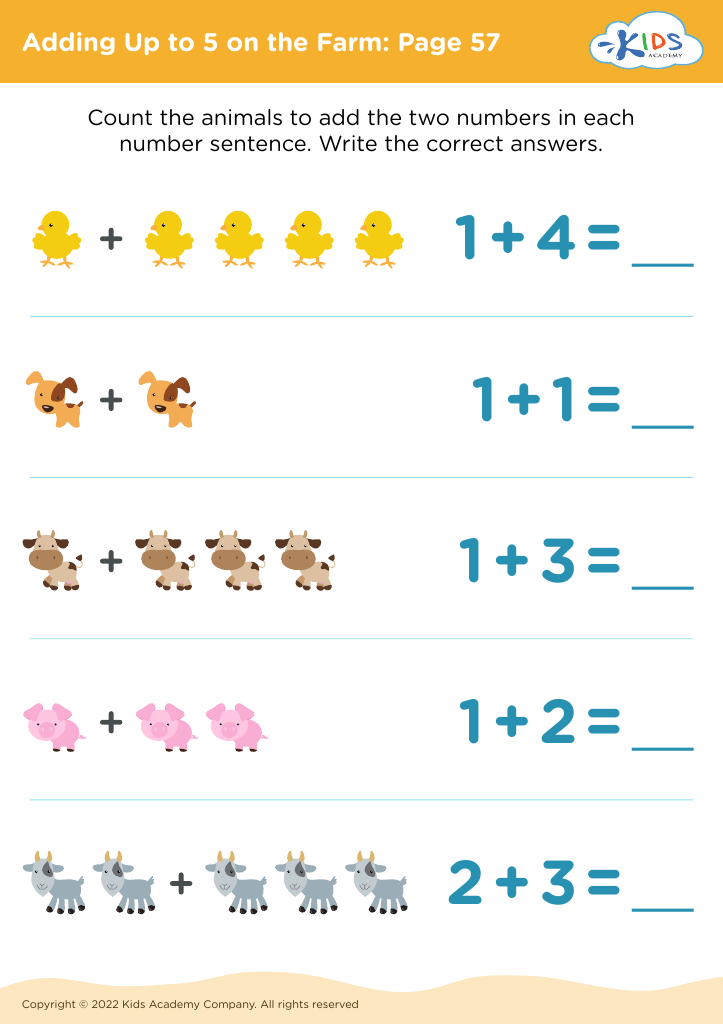Enhancing problem-solving skills Addition & Subtraction Worksheets for Ages 4-9
9 filtered results
-
From - To
Introducing our "Enhancing Problem-Solving Skills: Addition & Subtraction Worksheets for Ages 4-9" – perfect for building essential math foundations in young learners! These engaging worksheets cover various addition and subtraction problems, promoting critical thinking and problem-solving abilities. Suitable for kids aged 4 to 9, our fun, vibrant exercises are designed to capture their imagination while reinforcing key mathematical concepts. Perfect for classroom and home use, our worksheets adapt to different learning paces, ensuring every child thrives. Make math exciting and watch your child's confidence grow with Kids Academy's specially crafted resources!
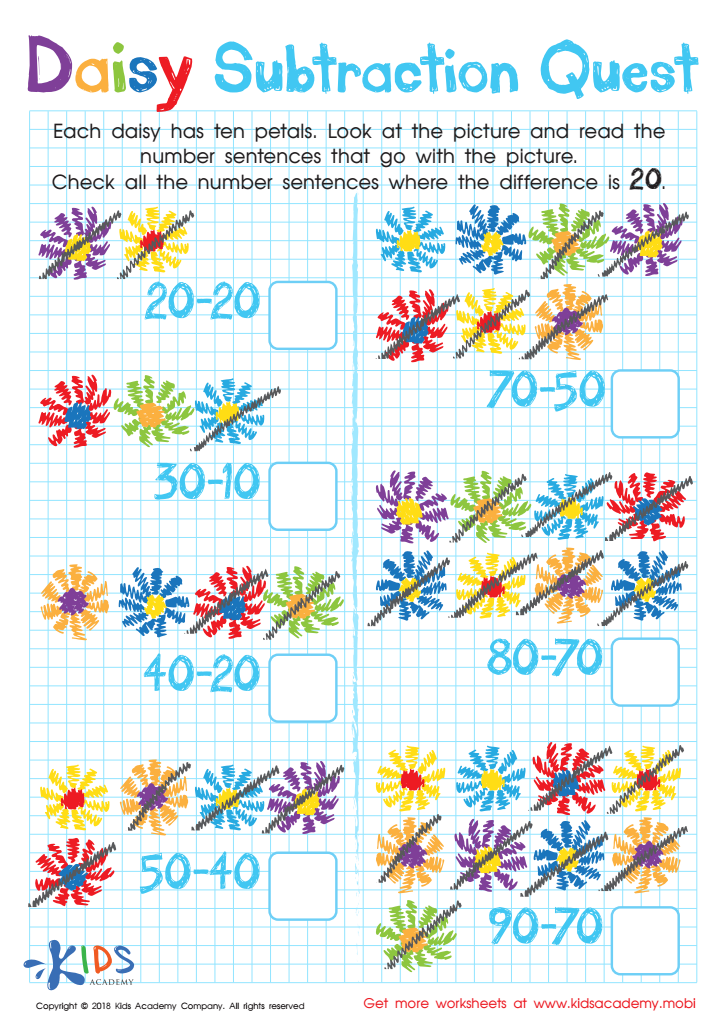

Daisy Subtraction Quest Worksheet
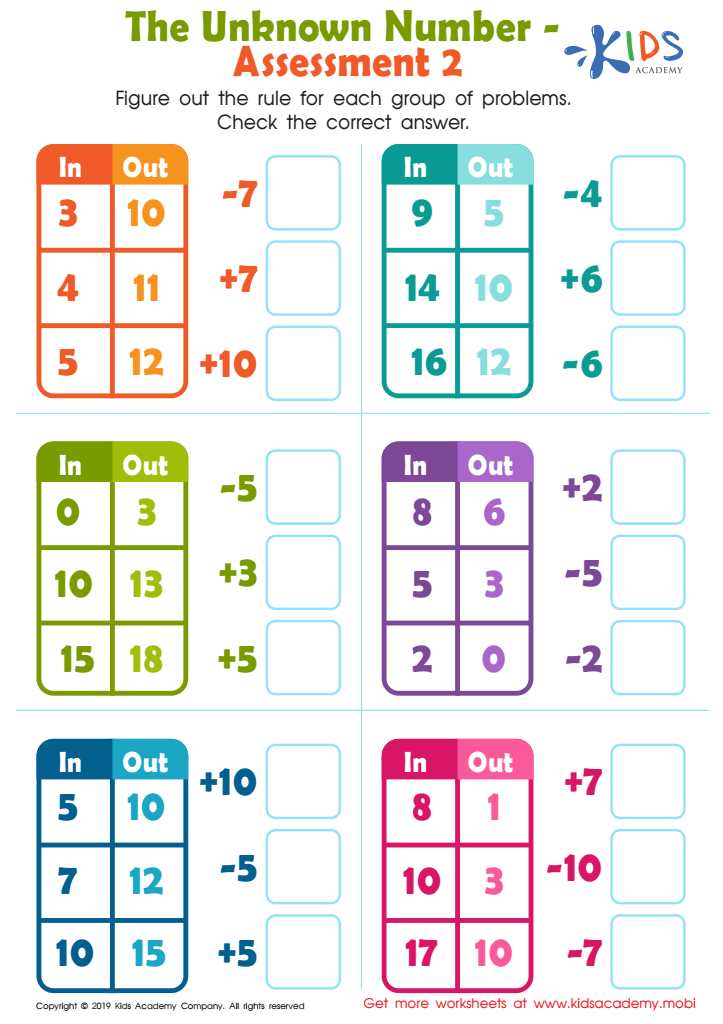

The Unknown Number - Assessment 2 Worksheet
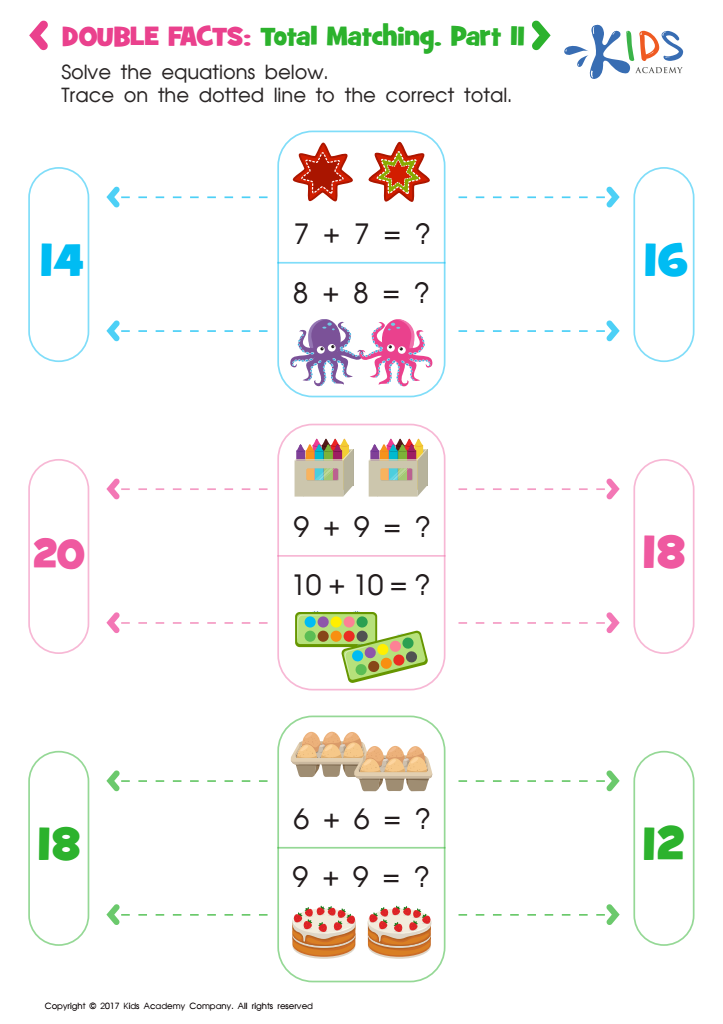

Double Facts: Total Matching 2 Worksheet
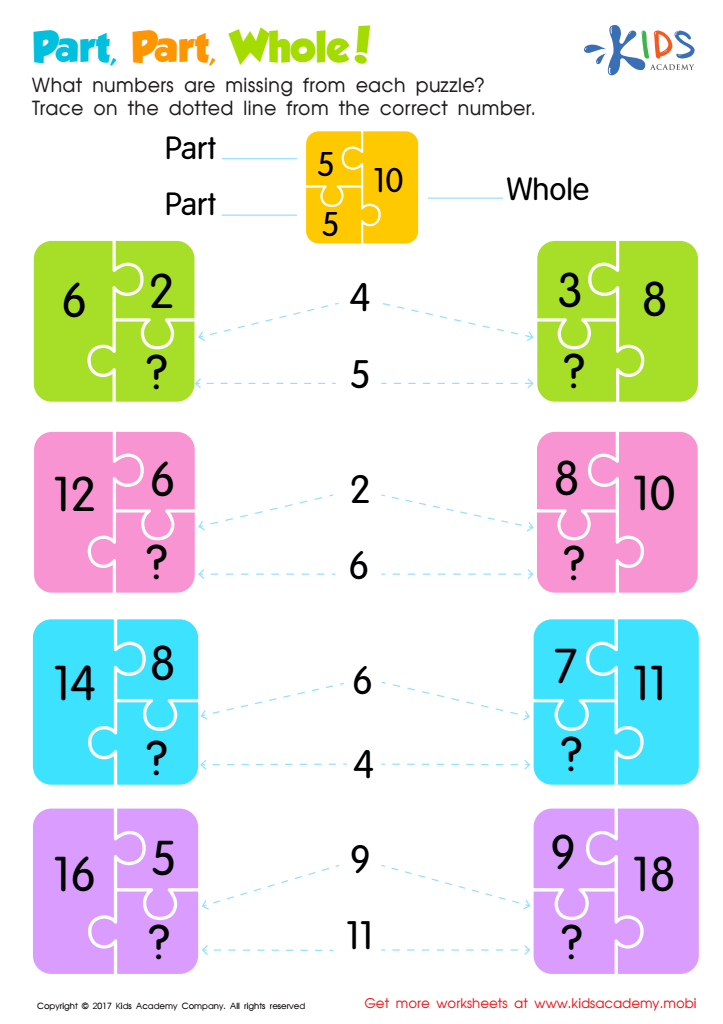

Part, Part, Whole Worksheet
Parents and teachers should prioritize enhancing problem-solving skills in addition and subtraction for children aged 4-9 because it forms the foundation of their numerical understanding and critical thinking abilities. Establishing a strong grasp of these basic arithmetic operations is crucial for future mathematical learning and day-to-day life situations. By learning addition and subtraction early, children develop the ability to approach problems methodically, understand patterns, and apply logical thinking.
Moreover, these skills contribute to cognitive development. Practicing addition and subtraction involves memory, focus, and conceptual reasoning, enhancing a child’s intellectual abilities and helping them perform better academically across subjects. It also promotes confidence and perseverance, as children learn to tackle challenging problems and find solutions independently.
Additionally, fostering problem-solving skills in a supportive environment helps children develop positive attitudes toward learning and instills a lifelong curiosity. Versatile problem-solving understanding extends beyond math, aiding children in understanding complex problems, making decisions, and interacting more successfully with the world around them. Engaging and effective teaching, using manipulatives and real-life scenarios, can also make learning more enjoyable, setting a positive precedent for future educational experiences.
In essence, focusing on these skills ensures children have the essential tools they need for both academic success and everyday life.

 Assign to My Students
Assign to My Students
